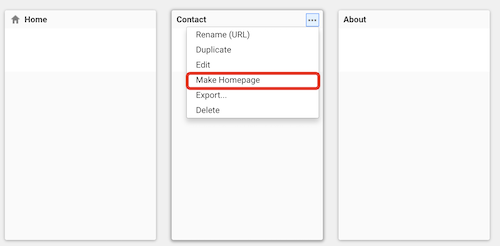charles
posted this
28 February 2023
Duplicate content is content that appears more than once with a unique website address (URL) - so, if the same content exists at more than one web address, you’ve got duplicate content.
It is not a penalty; however, it can still sometimes influence search engine rankings. Google calls it, "appreciably similar" and it can be difficult to choose which version is more relevant to a given search query.
When "appreciably similar" content is present, site owners can suffer rankings and traffic losses.
Search engines will seldom show on purpose several editions of the same subject matter, and thus are made to choose which edition is most likely to be the best result. This weakens the visibility of each of the duplicates.
Link equity can be further reduced because other sites must choose between the duplicates as well.
You will not get a straight answer from nicepage.com.
I got one from:
frankieboy posted this 20 April 2020
He said:
Name the homepage (first site) "index" and give it a "label" (HOME or START). Then you only have the index.html when exporting as HTML.
charles posted this 20 April 2020
Thanks that worked!
The reason this is necessary is if you type in an URL such as https://www.charlesholcomb.com, you have not presented any page the server should deliver to the client (computer or mobile phone). In many cases, what you will see then is the default page, or index.html page.
If you know the exact address of the page you want to view, such as https://www.charlesholcomb.com/About-Us.html, then the server will direct you to that page instead of the index.html page.
index.html is easily recognized on most servers as the default page, which is why many web developers choose to go with index.html as the default page name.
Duplicate content is content that appears more than once with a unique website address (URL) - so, if the same content exists at more than one web address, you’ve got duplicate content.
It is not a penalty; however, it can still sometimes influence search engine rankings. Google calls it, "appreciably similar" and it can be difficult to choose which version is more relevant to a given search query.
When "appreciably similar" content is present, site owners can suffer rankings and traffic losses.
Search engines will seldom show on purpose several editions of the same subject matter, and thus are made to choose which edition is most likely to be the best result. This weakens the visibility of each of the duplicates.
Link equity can be further reduced because other sites must choose between the duplicates as well.
You will not get a straight answer from nicepage.com.
I got one from:
frankieboy posted this 20 April 2020
He said:
**Name the homepage (first site) "index" and give it a "label" (HOME or START). Then you only have the index.html when exporting as HTML.**
charles posted this 20 April 2020
Thanks that worked!
The reason this is necessary is if you type in an URL such as https://www.charlesholcomb.com, you have not presented any page the server should deliver to the client (computer or mobile phone). In many cases, what you will see then is the default page, or index.html page.
If you know the exact address of the page you want to view, such as https://www.charlesholcomb.com/About-Us.html, then the server will direct you to that page instead of the index.html page.
index.html is easily recognized on most servers as the default page, which is why many web developers choose to go with index.html as the default page name.






